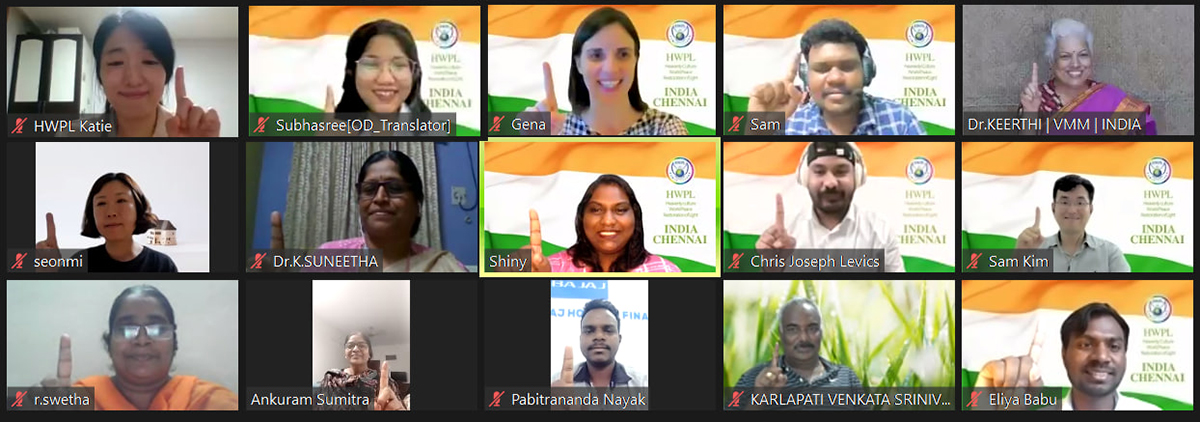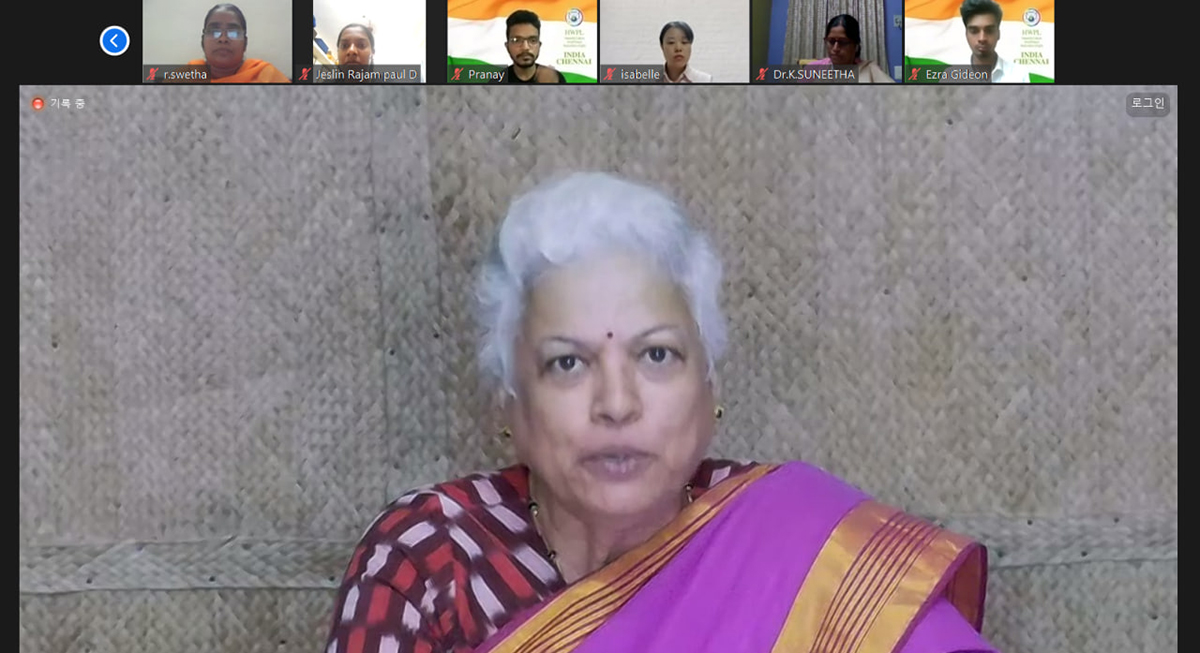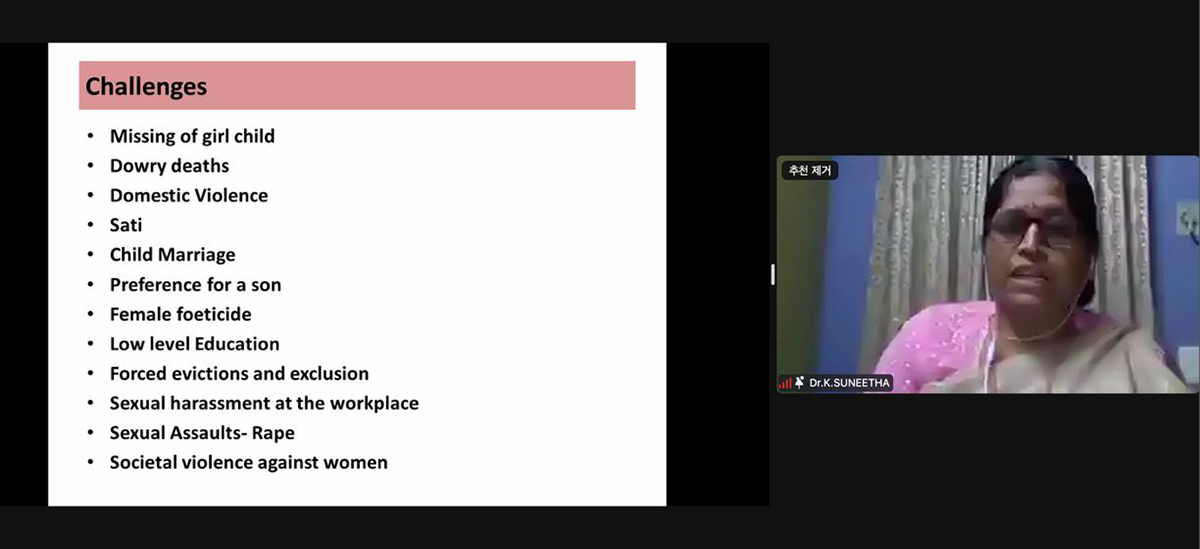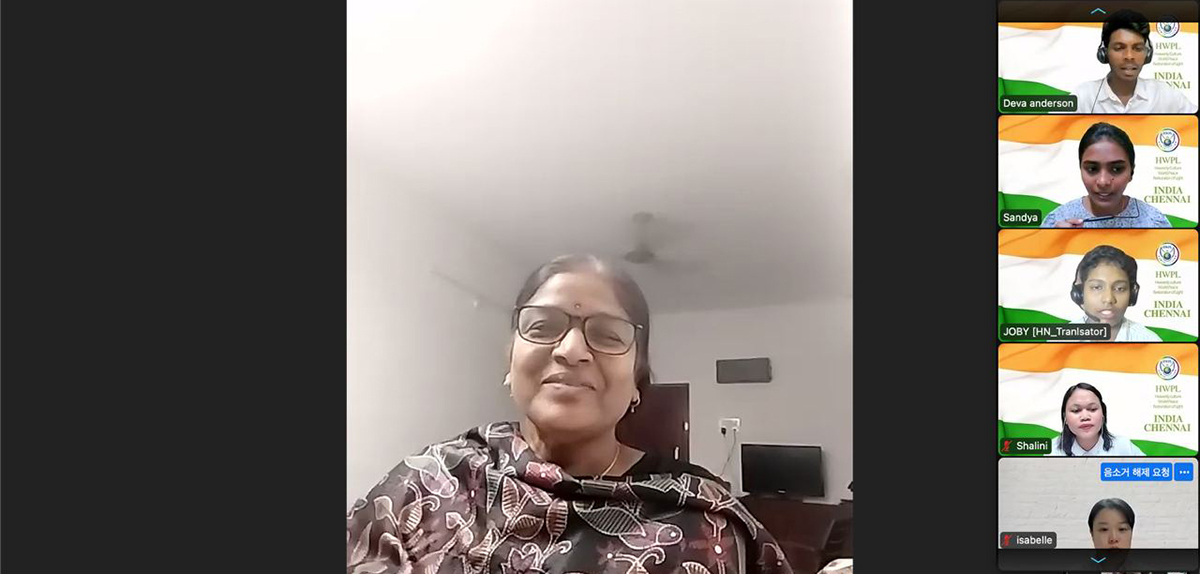Efforts and Tasks to Improve the Human Rights of Indian Women

On June 7, 2024, HWPL held a webinar in Andhra Pradesh, India titled, “Efforts and Tasks to Improve the Human Rights of Indian Women.” This was the second webinar regarding the human rights of women in India, following a webinar held in Chennai, India last year.
About 90 people attended the webinar, including the president of Vasavya Mahila Mandali (VMM) and an associate professor from Vikrama Simhapuri University, along with the founder of Ankuram Woman and Child Development Society. During the webinar, ways to protect and strengthen the rights of women by raising awareness of human rights issues in India were discussed.

Bolineni Kerti, president of Vasavya Mahila Mandali (VMM), outlined the key problems impacting women in India. Even though it has been 75 years since India gained independence, men have more freedom than women and violence against women is still normalized in society. However, it was announced that a network of women’s communities is being established to prevent violence against women by creating a support system to inform people in dangerous situations how to request help.

Kanumuri Suneetha, associate professor at Vikrama Simhapuri University, identified issues for women in India that currently need to be addressed, including missing girl children, early marriage, rape, dowry deaths, domestic violence, and female child abortion. She suggested that women should be given more opportunities to advance in society by strengthening their rights, including the right to education, so that women are given the same opportunities as men. She also proposed establishing a government monitoring system, including sexual harassment prevention legislation in labor laws, and promoting policies to encourage more labor participation of women in rural areas.

The last webinar speaker was Sumitra Makkapati, founder of Ankuram Woman and Child Development Society. Makkapati described how the dignity of Indian women is being threatened by extensive violence and discrimination. She spoke about the women who are suffering due to the dowry requirement, and the violence women are still subjected to due to the caste system. She also stressed the need for increased political will to resolve these problems. It was suggested that the Indian government address gender discrimination and gender role issues and be proactive in seeking fundamental solutions.
The webinar’s speakers highlighted the reality of addressing women’s human rights issues in India. The speakers, who were all leaders in their communities, agreed that in order to improve human rights conditions for Indian women from all walks of life, the wider community, including the government, civil society organizations, and educational institutions, must work together to develop and supplement solutions.
During the question and answer session, event participants emphasized that raising awareness among citizens is key when working to improve the human rights of Indian women and establish a culture that promotes gender equality. They also expressed hope that India would become a country where everyone is respected.













